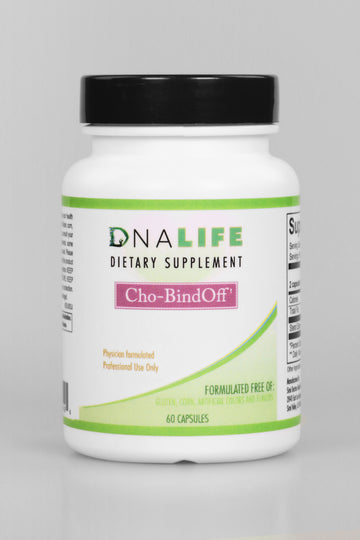Cho-Bindoff

Cho-Bindoff
CLINICAL APPLICATIONS
- Provides Support for Overall Cardiovascular Health
- Helps Maintain Healthy Cholesterol Levels
- Supports Immune Health
OVERVIEW
Early historical diets were rich in phytosterols (found in grains, vegetables, fruits, legumes, nuts, and seeds), providing as much as 1 g per day. Phytosterols undergo absorption similar to that of cholesterol. In a process in the small intestine, phytosterols displace cholesterol from food and reduce cholesterol absorption, resulting in a beneficial effect on blood cholesterol levels. In addition, the minimal amount of phytosterols that are absorbed into the body, once taken up by the liver , are rapidly secreted into bile by hepatic transporters at a high rate, enhancing cholesterol excretion. These mechanisms allow plant sterols to provide multi-spectrum support for cardiovascular health and cholesterol management.
Research has shown that phytosterols, plant-based compounds structurally similar to cholesterol, compete with cholesterol for absorption and thus play a key role in supporting healthy cholesterol levels. According to the FDA, "products containing at least 0.65g per serving of plant sterol esters, taken twice daily with meals for a daily total intake of at least 1.3 g, as part of a diet low in saturated fat and cholesterol, may reduce the risk of heart disease." The National Cholesterol Education Program (NCEP) of the National Heart, Lung and Blood Institute of Health suggest the use of plant sterols to promote cardiovascular health. The Plant Sterols formula includes a variety of purified plant sterols: campesterol, stigmasterol, b-sitosterol, and other cholesterol-like compounds. Two capsules provide the recommended 1.3 g of plant sterol esters for maximum cardiovascular benefits.
INGREDIENT BENEFITS
Phytosterols
Phytosterols are structurally similar to cholesterol. Although there are many different phytosterols found in plants, the phytosterols most abundant in the diet are b-sitosterol, campesterol and stigmasterol. Scientific evidence demonstrates that diets that include phytosterols may support cardiovascular health. The scientific evidence establishes that including phytosterols in the diet helps to lower blood total and LDL cholesterol levels. Foods or dietary supplements containing at least 0.5 g per serving of phytosterols taken with meals or snacks for a daily total intake of 2 g, as part of a diet low in saturated fat and cholesterol, may reduce the risk of heart disease.
|
DIRECTIONS: 1-2 capsules per day or as recommended by your health care professional. |









